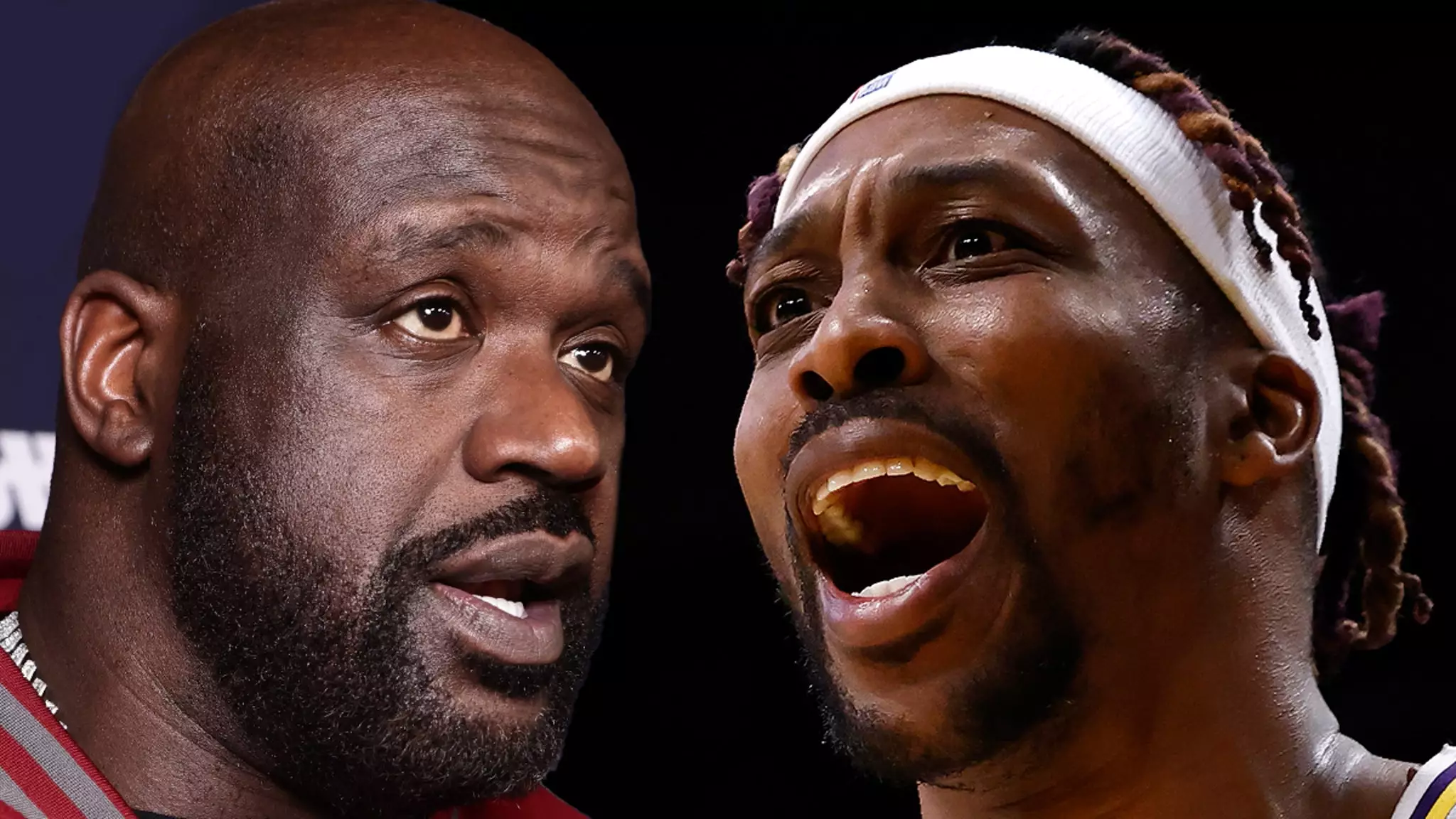In the turbulent world of professional basketball, rivalries often become personal, especially when former champions like Shaquille O’Neal and Dwight Howard are involved. Recently, O’Neal took the significant step of officially severing ties with Howard, declaring that he has “deleted” his long-time adversary from his life. For years, the acrimonious exchange between the two has been a topic of discourse for fans and commentators alike, yet O’Neal’s latest remarks signal a potential shift towards closure in this ongoing saga.
These tensions initially flared due to Howard adopting the trademark “Superman” moniker, which O’Neal himself had famously claimed during his illustrious career. When Howard revisited their history in a recent podcast, expressing anger and suggesting he might confront Shaq physically, it reignited the flames of their rivalry. Instead of letting the comments slide, O’Neal responded vocally on social media, underscoring the mockery inherent in Howard’s outrage. Shaq’s quip about Howard’s sensitivity served to highlight not just the dramatic dynamic between these two players but also the differences in how they handle personal conflicts.
Social Media as a Battleground
In an era where social media has become the new coliseum for disputes, O’Neal’s response was both assertive and dismissive. His declaration that he would “never say your name again” struck a confrontational tone, suffused with hashtags that bluntly conveyed his indifference and disdain. By referencing the necessity of mutual respect and suggesting Howard’s ongoing insecurities, O’Neal positioned himself as the more composed party, even while engaging in an online feud that feels more like a game of ego than a genuine rivalry.
Howard’s rebuttal, however, showcased a different narrative. He accused O’Neal of being bitter and resentful, underscoring a sense of urgency and vulnerability underneath his own bravado. His mention of O’Neal’s famous teammates and the assertion that the big man has been hating for over two decades presents a counter narrative—one depicting Howard as self-assured amidst O’Neal’s perceived envy. The exchange not only reflects their personal dynamics but also illuminates the larger themes of recognition, legacy, and the burdens that come with fame.
The End of an Era?
Although O’Neal has declared Howard “dead” to him, the reality of their storied rivalry hints at a deeper cultural phenomenon within the sports community. Male athletes, particularly those of immense stature and talent, often struggle with vulnerability, and what can emerge is a toxic interaction characterized by jealousy and competitive nature. This incident is emblematic of that struggle—a public spat unveiling private insecurities.
As fans watch this multifaceted drama unfold, one can’t help but question whether this will truly represent the end of their discord or merely a pause in a longer narrative fueled by pride and ego. As both players navigate their respective post-basketball careers, their dynamic serves as a lesson in conflict resolution in the often ruthless world of sports. Whether through humorous jibes or pointed critiques, the legacy of their feud invites discussion, reflection, and perhaps—just perhaps—a lesson in the importance of reconciliation.


Leave a Reply